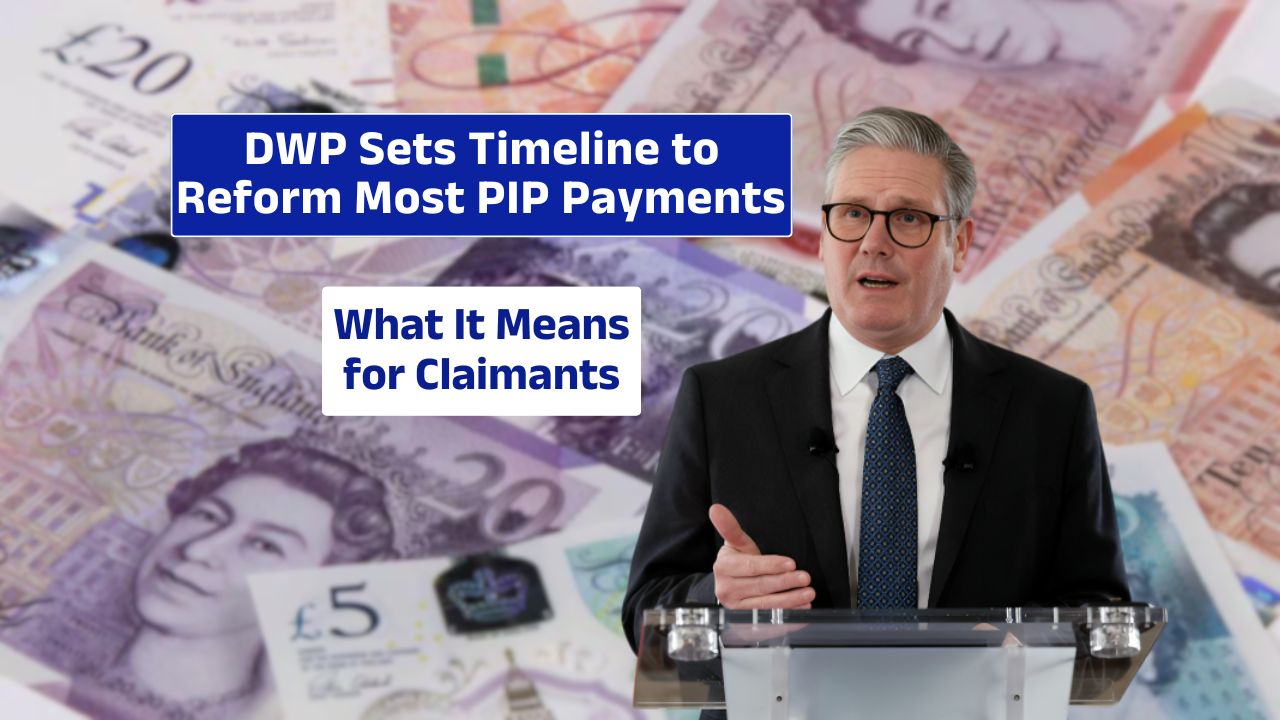Big changes are coming to Personal Independence Payment (PIP) in the UK, and if you claim it—or might in the future—you’ll want to listen up. The Department for Work and Pensions (DWP) has just confirmed a major reform to PIP eligibility rules, set to roll out from November 2026.
Over 1.2 million people could be impacted, with thousands potentially losing up to £6,300 a year. Let’s break down exactly what’s happening, why it’s happening, and how you can get ahead of the changes.
Overhaul
PIP is one of the UK’s key disability benefits, designed to help people with the extra costs of long-term health conditions or disabilities. It’s currently awarded based on a points-based assessment across 12 daily living and mobility tasks.
But under the new plan, you’ll need to score at least four points in one specific daily living activity to qualify—stacking small points across different areas won’t be enough anymore.
This marks the biggest shake-up to disability benefits in over a decade, and it’s aimed at reducing rising costs, tightening eligibility, and—according to the government—encouraging more people to return to work.
Impact
Let’s look at the numbers:
| Aspect | Details |
|---|---|
| Policy Change | Must score 4+ points in a single activity |
| Who’s Affected | 1.2 million+ current or future PIP claimants |
| Financial Loss | £4,200–£6,300 per year for affected individuals |
| Start Date | November 2026 |
| Government Savings | Over £5 billion annually by 2030 |
Those most at risk are people with mental health issues, neurodivergent conditions like ADHD or autism, and anyone whose support needs span several low-scoring areas rather than one severe one.
Example
Take Emily, a 28-year-old with ADHD and anxiety. She currently gets PIP because she:
- Needs reminders to cook (2 points)
- Needs help managing medication (2 points)
- Needs supervision in social settings (2 points)
- Needs prompting to dress (2 points)
That’s 8 points total—just enough under the old system. But under the new rules? Not a single category hits the 4-point threshold. She could lose her entire award.
Rationale
So why is the government doing this?
According to the DWP, the aims are to:
- Make the system financially sustainable
- Focus support on those with the most serious needs
- Prevent misuse
- Encourage more people back into work
The government says too many people are receiving PIP for mild to moderate mental health conditions and wants to “rebalance” the system.
Backlash
Disability organisations are not impressed. Charities like Scope, Disability Rights UK, and Mind say the changes will leave many vulnerable people without critical support.
Critics argue that PIP already has strict eligibility and that removing support could actually push more people into poverty, increasing NHS demand and social care costs in the long run.
Preparation
So, what should you do now?
- Know the New Criteria
Look into the draft proposals and see how you might score under the new setup. - Collect Strong Medical Evidence
Get updated letters from your GP or specialists. Reports that detail how your condition affects daily life will be crucial. - Speak to a Benefits Advisor
Contact organisations like Citizens Advice, Scope, or Turn2Us. They’ll help you plan ahead. - Know Your Timeline
The new rules won’t hit until your next reassessment after November 2026, so if your review is in 2027 or later, start preparing now.
Risks
These changes could leave many people without the help they rely on for everyday life. For some, that means cutting back on food, heating, or transport. For others, it could worsen their health or push them further from work—the exact opposite of what the government says it wants.
Whether you’re a current claimant or considering applying in the future, knowing the system now gives you the best chance of staying supported when the changes kick in.
FAQs
When will the PIP reforms start?
The changes are set to begin from November 2026 onwards.
Who will be affected most?
People with low or spread-out support needs, especially mental health.
Will mobility rules change too?
No, mobility eligibility remains unchanged for now.
Can I still apply under the current rules?
Yes, current rules apply until your next reassessment after Nov 2026.
How much support might people lose?
Up to £6,300 per year, depending on current award level.




















